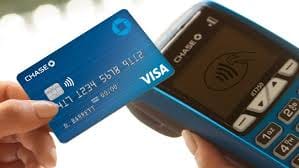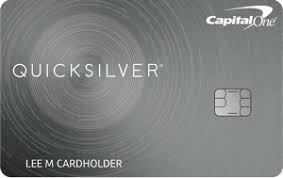How Long to Keep Credit Card Statements: A Comprehensive Guide
How Long should I keep my credit card statement? From my experience you cant go wrong with waiting but throwing them away too soon could be a pain.

First, please consider subscribing to my email list so I can keep providing these insights for free. Here's what you'll get:
- Our printable downloads
- Our digital downloads
- All of our exclusive credit card articles
- Waitlisted for our insights newsletter
How Long Should Credit Card Statements Be Kept and How to Dispose of Them Properly
“These are pointless” — My sentiment every time I used to receive credit card statements in the mail.
Those stacks of old credit card statements may seem like useless clutter but holding onto them too long—or not long enough—might be a huge financial mistake.
Here’s how long you need to hold onto those statements and reduce your clutter in the meantime.
The Basics of Credit Card Statements
Ok so if you’re like me and just used to toss those statements into the trash, you’re missing out on valuable information about your spending. Credit card statements are not just monthly summaries of your cash flows; they are important pieces of financial documentation.
What Are Credit Card Statements?
Credit card statements are documents provided by your credit card issuer that detail the transactions you've made during a billing cycle.
What's On a Credit Card Statement?
Credit card statements show;
- Interest charged
- Fees
- Income and Credits
- Payments
- Purchases
These statements also show your total balance (starting and ending for the cycle), minimum payment due, and the due date for that payment.
These line items depending on your spending can help you track where your money goes, identify any unauthorized transactions, and understand how interest and fees are applied to your account.
Why Are Credit Card Statements Important?
Keeping a close eye on your credit card statements is essential for several reasons.
Firstly, it allows you to verify that all the transactions listed are accurate and authorized. Spotting fraudulent activity early can save you from financial loss and a lot of stress.
Plus, regular reviews of your statements can help you understand your spending habits better, making it easier to adjust your budget and save money.
Lastly, credit card statements are handy for resolving disputes with merchants and providing evidence for tax purposes or warranty claims.
How Long Should You Keep Credit Card Statements?
The general recommendation is a year. Some say minimum 60 days but to be safe a year is solid.
But the answer isn't as straightforward as you might hope.
For example, are you going to be buying a house? Financing a car? What about the possibility of amending and refiling a tax return? The timeline could stretch. See what I mean? The answer can vary, but I'll break it down to make it as clear as possible.

General Recommendations
As a rule of thumb, it's wise to keep your credit card statements for at least one year. This timeframe allows you to compare your annual spending and income, which is particularly useful for personal budgeting and preparing your tax returns.
However, for certain documents related to taxes, warranties, or insurance claims, you may need to hold onto your statements for longer. In these cases, keeping your statements for up to seven years is advisable, aligning with the IRS's period for auditing tax returns.
Special Circumstances
There are exceptions to the general rule, depending on your personal or business financial situation. For instance, if you're using your credit card for business expenses, keeping your statements for the entire duration of your business operation plus seven years post-closure is recommended for tax audit purposes.
Similarly, for big-ticket items with warranties extending beyond a year, retain the relevant credit card statement to support any future warranty claims. This documentation can be crucial for proving the purchase date and price.
Is it safe to throw away old credit card statements?
No, you should always shred or significantly black out any sensitive information. This includes anything that has:
- Your social security number
- Your drivers license
- Your bank information (think deeper than account numbers, like balances)
- Your credit card numbers
- Your passwords (even your user name)
- Your full name
- You home address
- Your telephone number
- Your birthday
- Your drivers license
Hackers are on a whole new level with how they can access, steal and use your personal info to commit fraud. Don't be a victim. When in doubt always exercise caution.
Digitizing Your Statements
Ever seen the TV show, Hoarders? That’s what you end up feeling like after a year of storing every piece of paper you’ve accumulated over 12 months.
In our increasingly digital world, keeping physical copies of every credit card statement isn't just impractical; it's unnecessary. Let's explore the benefits of going digital and how to do it effectively.
3 Benefits of Digital Statements
Digital statements are a no-brainer, I can’t think of any reasons not to opt in. Switching to digital statements can significantly reduce clutter and make it easier to organize and access your financial records. Most credit card issuers offer the option to receive statements electronically, which not only saves paper but also ensures that your financial information is securely stored and easily retrievable.
Another advantage of digital statements is the ability to use search functions to quickly find specific transactions or statements, saving you time and frustration.
How to Digitize Your Statements
Digitizing your credit card statements is easy (or it should be nowadays). Most times it’s done for you automatically.
Not seeing them? They may be hidden within your app or online profile. For example, if you don’t see them on the home screen. Try checking under:
- The home screen
- Your profile
- Type it into your search bar, and use the term “statement”.
If all else fails give your bank a call, but a general Google search should do the trick. Try the term –“How to view my statements on XYZ credit card”.
If you don’t have a profile online (weird.) start by setting up online access to your credit card account. Opt-in for electronic statements and download copies for your records. Organize your digital statements in clearly labeled folders on your computer or a secure cloud service, making sure to back up your data regularly.
For added security, consider using encryption or a password-protected folder to store your statements, especially if you're using cloud storage services. I’m a big fan of two-factor authentication.
Credit Card Statements for the Win
Understanding how long to keep credit card statements and managing them effectively is one of those back-burner aspects of financial health. It typically operates on autopilot but will require some maintenance now and then.
Whether you choose to keep physical copies for a year or transition to a digital system, the key is to maintain a system that works for you and ensures that your financial records are organized, accessible, and secure.
Remember, staying informed and proactive about your financial documentation can save you time, protect you from fraud, and provide peace of mind. So, take control of your credit card statements today and set yourself up for financial success tomorrow.




Comments ()